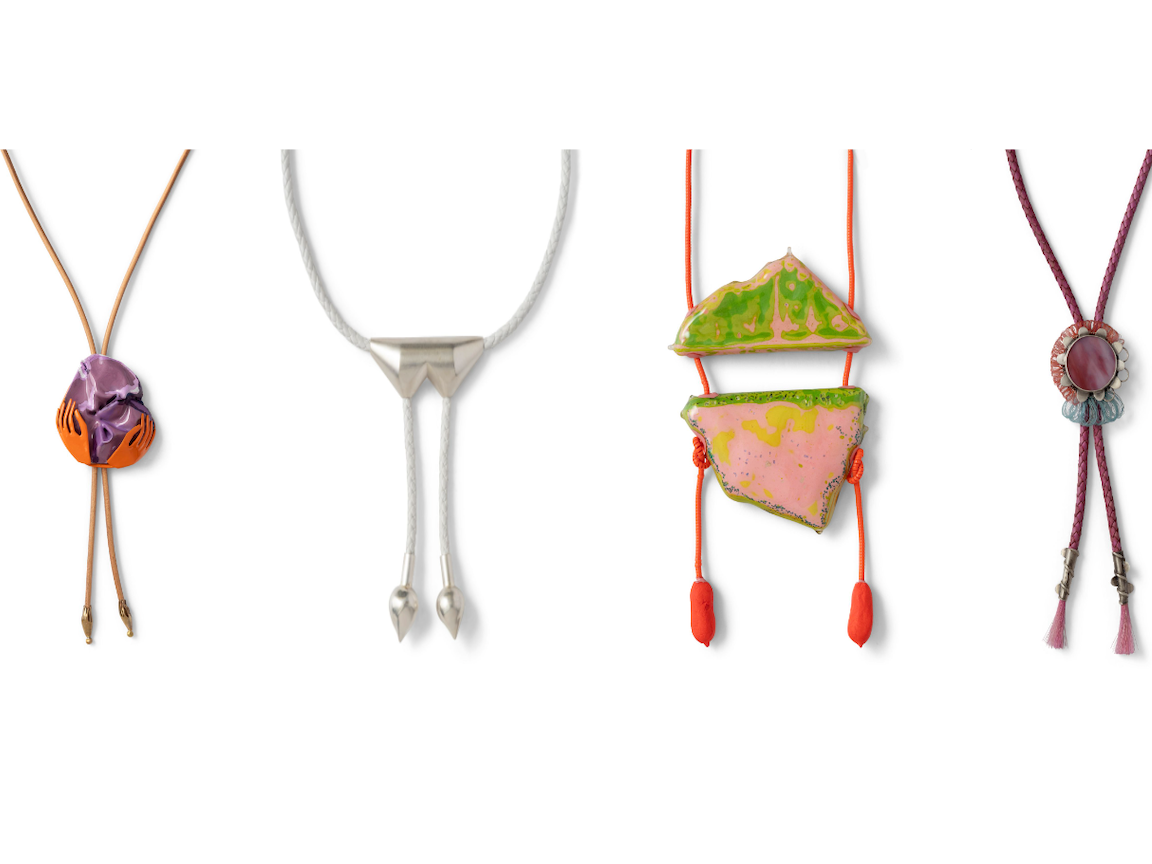DENTON (UNT), Texas — “Everybody’s Bolos,” a traveling exhibition featuring 30 bolo ties crafted by contemporary artists, debuts Feb. 6 through May 10 at the CVAD Gallery.
Co-organized by UNT Professor Ana M. Lopez, who teaches metalsmithing and jewelry in the College of Visual Arts and Design, the exhibit examines the cultural history and significance of the bolo tie in marginalized communities as well as its expressive potential and relevance as a gender-neutral form of personal adornment.
“It’s sort of a liminal object between a necklace and a necktie,” Lopez said. “While it’s historically been associated with masculine gender, it has long been worn by multiple identifiers.”
On a deeper level, Lopez said, the exhibit is “about recognizing stereotypes, exploring them and expanding beyond their limitations through the agency and inclusivity of craft.”
The public is invited to attend an opening reception from 5 to 7 p.m. Feb. 8 at the CVAD Galley. Registration is required to attend the accompanying “Everybody’s Bolos” Symposium from 10 a.m. to 6 p.m. Feb. 24 in UNT’s Art Building, Room 223. Learn more about the exhibition and events.
In 2023, Lopez was selected for the UNT Institute for the Advancement of the Arts Faculty Fellows program. She began researching bolo ties after then-post-baccalaureate student Hannah Reynoso Toussaint approached her two years ago about creating a series of bolo ties to include in her portfolio.
Lopez quickly discovered that published research about bolo ties was limited. As part of the fellowship, she traveled to the Heard Museum in Phoenix, Arizona, where she studied a collection of bolo ties and records about their makers.
Bolo ties are closely affiliated with Native American culture and indigenous populations, she said, with some of the earliest ones likely having been produced by silversmiths in the southwestern U.S. and Mexico. They also have been embraced by members of LGBTQ+ communities.
“The bolo tie really grew out of the scarf slide most directly,” Lopez said. “But in some ways, there is a missing link because we don’t know when or why it moved onto a leather cord. It really was a regional object although now it’s popular all over the world.”
Lopez co-organized “Everybody’s Bolos” with Brian Fleetwood, assistant professor at the Institute of American Indian Arts in Santa Fe, New Mexico, and citizen of the Muscogee Nation of Oklahoma; and Toussaint, a metalsmith and craft artist who in 2021 completed a post-baccalaureate program in metalsmithing and jewelry at UNT.
Toussaint previously has crafted numerous bolo ties that her nonbinary partner wears.
“I think a lot of queer theory has to do with identities being in kind of this liminal space, and I saw a parallel to that in the bolo tie,” she said.
Lopez, Toussaint and Fleetwood, who created ties for “Everybody’s Bolos,” each invited 10 artists to appear in the exhibit, including CVAD studio art professor James Thurman. Most of the artists previously had not created a bolo tie.
Through the exhibit, which is slated to travel in 2025 for exhibition at the Fuller Craft Museum in Massachusetts, Toussaint said she hopes “people will reconsider history a little bit, maybe reassess their knowledge about how the world works and reassess their ideas of gender.”
